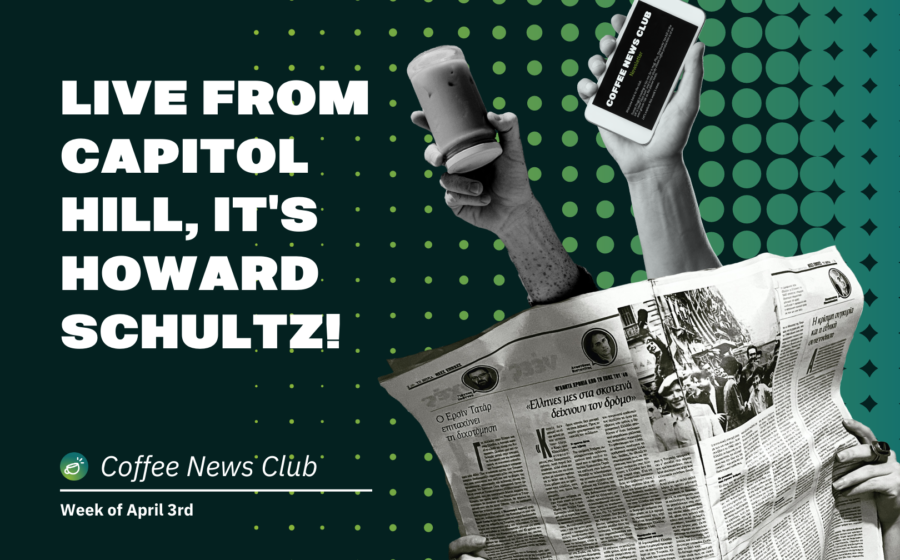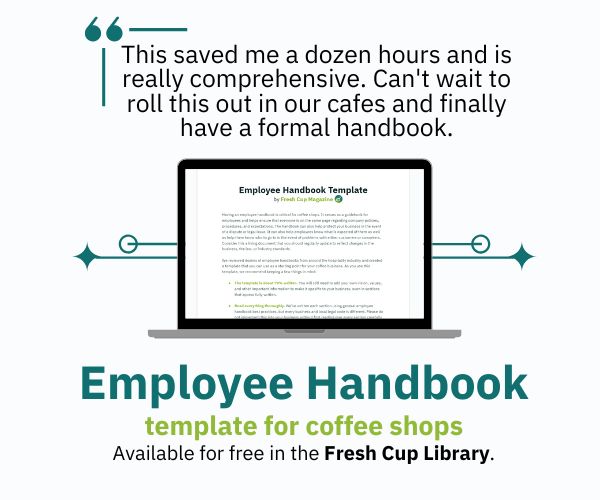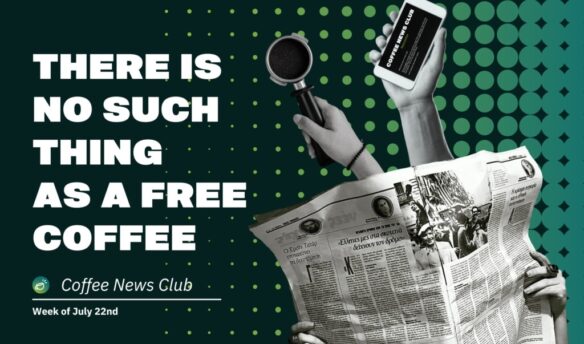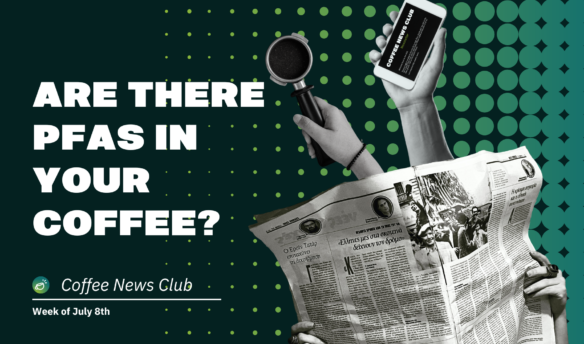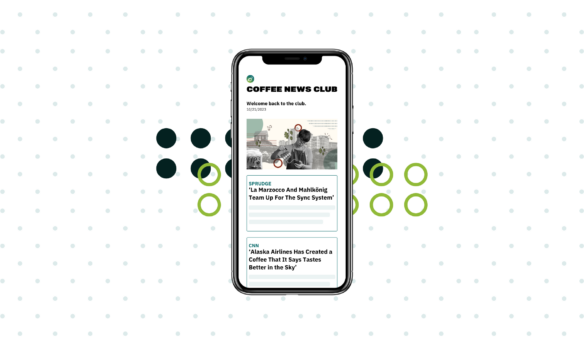Live from Capitol Hill, iiiiiiit’s Howard Schultz! Plus, Fairtrade International raises its minimum prices, and how coffee could protect against multiple sclerosis.
‘Howard Schultz Testifies Before Congress About Starbucks Labor Practices’ – via Sprudge
After weeks of dawdling and defensiveness, the threat of a subpoena finally brought Howard Schultz to Congress to testify before the Senate’s Health, Labor, Education, and Pensions (HELP) Committee. Schultz testified in a hearing called “No Company is Above the Law: The Need to End Illegal Union Busting at Starbucks.”
Schultz, who planned to step down as CEO on April 1st, 2023, but vacated his position two weeks early (and nine days before the Senate hearing), was accused by committee chair Sen. Bernie Sanders of presiding over “the most aggressive and illegal union-busting campaign in the modern history of our country.”
“Strong unions are a vital part of rebuilding the declining middle class in this country,” Sanders said in his opening remarks. “Corporations have engaged in an unprecedented level of illegal union-busting activities.”
Schultz defended Starbucks’ labor record, responding: “These are allegations, and Starbucks has not broken the law.” Before the hearing, Sanders released a report that found Starbucks broke the law 130 times in six states, with 70 National Labor Relations Board (NLRB) cases currently pending.
The ex-CEO also took offense at being labeled a billionaire: “I have billions of dollars. I earned it. Nobody gave it to me,” he said. It would take someone earning $46,800, the average full-time US income in 2018, more than 21,000 years to earn $1 billion, assuming they never spent any of their income on things like food and rent. Schultz claimed that the average Starbucks barista makes $17.50 per hour, which works out to $36,400 per year for a full-time employee—so a Starbucks employee would have to work a few thousand years more to get to that $1 billion mark (assuming an employee gets full-time hours, and the question of slashing hours for unionized workers came up during Sen. Ben Ray Luján’s inquiry).
Starbucks brought corporate representatives to the hearing, leading to awkward scenes as management lined up alongside the barista organizers they had fired. Throughout his testimony, Schultz repeatedly hammered that he works in partnership with his employees, but as soon as Schultz finished, corporate employees left, declining to hear the statements of unionized workers and legal experts.
‘Fairtrade International Makes Historic Raise to Coffee Prices’ – via Daily Coffee News
Fairtrade International will raise its minimum prices for certified arabica and robusta coffee “to strengthen protections for coffee farmers around the world amid the intensifying impacts of climate change and growing global economic volatility.” 60% of coffee is grown on farms of less than five hectares, and nearly half of smallholding producers live in poverty—a topic we’ve covered in past newsletters.
The new minimum price will take effect in August 2023. Arabica prices—representing more than 80% of all coffee sold by Fairtrade International—will go up to $1.80 per pound, an increase of 40 cents. Robusta minimums will increase to $1.20 per pound, up 19 cents. The additional premium for organic Fairtrade coffee will increase from 30 to 40 cents per pound.
“Despite the recent spikes in global coffee prices, coffee farmers are struggling with inflation, skyrocketing production costs, and crop loss due to the effects of climate change,” said Monika Firl, Senior Manager for Coffee at Fairtrade International. “The fact that farmers cannot make a living in coffee is a tragic commentary for the industry and a huge risk for the future of the global coffee sector as a whole.”
Additionally, more than €400 million in additional premiums have been granted to nearly 900,000 farmers worldwide with Fairtrade certification since 2017. This premium is collectively invested “in projects to improve productivity, climate adaptation, quality, infrastructure, and basic community services identified as priorities by the farmers themselves and their organizations,” according to the announcement.
Fairtrade says producers retain around one percent of the retail coffee price, amounting to just $0.04 from a $4 cup of coffee. “It is not acceptable for coffee farmers to continue to subsidize the multi-billion dollar coffee industry, while also taking on the hard work of sustainable transition,” said Firl.
While the increase to $1.80 per pound is a big jump, there is still work to do: the Specialty Coffee Association released a review in 2017 and found that the minimum threshold for profitability was $2.50 per pound.
More News
‘USDA Research Agency Joins WCR’s Innovea Global Breeding Network’ – via Daily Coffee News
‘The Road To Milan: New Docuseries Follows Andrea Allen To The WBC’ – via Sprudge
‘First Sustainability Schemes Aligned with Coffee SR Code Recognised by GCP’ via Global Coffee Report
‘Here Are the 2023 SCA Sustainability Award Winners’ – via Daily Coffee News
‘Saudi Arabia to sign ICO International Coffee Agreement’ – via Global Coffee Portal
‘Molly Wilson’s Lacsnac Brings’ Lactation Coffee’ to Market’ – via Daily Coffee News
The Week in Coffee Unionizing
Schultz’s testimony in front of Congress was highly anticipated, with outlets worldwide covering the hearing: here are more highlights:
- Senator Sanders alleged that Starbucks’ anti-union campaign is one of the most aggressive in modern history, citing the huge number of complaints and unfair labor charges the NLRB has filed. Despite over 300 stores voting to unionize, Sanders also noted that not a single store has ratified a contract. In his opening statements, Sanders said Starbucks’ tactics to thwart the union have been “to stall, to stall, and to stall.”
- Republican senators on the HELP committee generally came to Schultz’s defense: Sen. Rand Paul called the hearing a “witch-hunt,” and Sen. Bill Cassidy branded it a “smear campaign.” Nearly every Republican senator asserted that workers have the right to unionize—71% of Americans view unions favorably—so many chose to use their time to question the need for a union at Starbucks or attack the legitimacy of the NLRB rather than ask any questions about union-busting or illegal actions. Paul made a series of odd statements like, “Many would argue we have too much food. It’s extraordinary how wealthy we are!” and “You know what’s sustainable? Capitalism and profit.”
- Schultz’s main argument seemed to be that only mistreated workers require unions, going as far as to tell a story about his father, who slipped and broke his foot at work and was let go shortly after that. He used this story to show that since Starbucks does “nothing that is nefarious,” the company doesn’t need a union. Instead, he insisted that Starbucks’ “preference” is to “work with partners directly.”
- Schultz claimed numerous times that Starbucks has never “broken the law,” despite multiple rulings from judges litigating that Starbucks violated federal labor laws. Sen. Chris Murphy called Schultz’s continued denial “akin to someone getting ticketed for speeding 100 times saying I have never violated the law.”
- Senator Ed Markey was pictured with a Red Cup Rebellion mug next to him during the hearing, a fact he later confirmed. The rebellion, a one-day strike coinciding with Starbucks’ popular holiday-themed Red Cup Day, took place in November 2022 to protest the breakdown in several collective bargaining sessions the month before. Sen. Markey delivered a damning speech condemning Schultz’s alleged anti-union actions and referenced Schultz’s story about his father: “You fundamentally do not understand that these workers are just like your father—they have no rights.” This led to the most heated exchange of the hearing.
Hours after the hearing, 52% of Starbucks shareholders approved a proposal that could see an independent assessment of the company’s labor practices. The New York City pension fund proposed the review and was supported by other shareholders, including the German insurance giant Allianz and two top proxy advisory firms. “The majority support from shareholders for our proposal reflects a growing demand for an honest accounting of the discrepancy between Starbucks’ purported values and management’s anti-union behavior,” said New York City Comptroller Brad Lander.
And finally, two more neighborhood clusters of Blank Street Coffee workers voted overwhelmingly to join the United Food and Commercial Workers (UFCW) Local 1500. The 54 workers will join 34 members from the West Brooklyn neighborhood umbrella group that voted to unionize in February 2023. UFCW 1500 has chosen to organize Blank Street workers based on neighborhoods, as individual stores sometimes only have one or two employees. “I wanted to organize because I want the legal protection and support that a union provides. This win means that I am not alone. This win means having a voice. It means transparency between workers and our employers and a newfound sense of job security,” said barista Lucie Mead.
Is Coffee Good For You?
According to a new study from Iran, coffee drinkers might be significantly less likely to develop multiple sclerosis (MS).
MS is a disease that affects the central nervous system and disrupts the flow of information through the body. The exact cause is unknown but is thought to involve a combination of genetic, environmental, and lifestyle factors. More than two million people worldwide suffer from MS. While it is rarely fatal, the average life expectancy of MS patients is about seven years less than the general population (the good news is that the gap is getting shorter all the time).
The study, published in the Journal of Health, Population and Nutrition, examined the relationship between different beverages and MS and involved 146 patients at an Iranian hospital alongside 277 age-matched control participants. Researchers found that coffee, green and black tea, and non-alcoholic beer “significantly reduce the risk of MS and have protective properties.”
“Based on the results,” the authors write, “the participants who had no coffee consuming experience are 14.5 times more likely to develop MS than those who drink coffee.” 14.5 times!
The researchers theorize that polyphenols and other phytochemicals present in coffee and green and black tea might play a part in these findings. Polyphenols such as chlorogenic acid have been found to possess protective properties such as antioxidant, anti-inflammatory, and antihypertensive effects.
This new research builds on previous studies that have found coffee drinking to lower the risk of MS. Researchers caution that because this new study involved drinking habit recall, there is the possibility of memory bias. They recommend future studies use methods to control for such factors.
Beyond the Headlines
‘Mourning The Coffeeshops We’ve Lost’ by Valorie Clarke
‘Is It Time To Rethink Coffee Shipping Materials?’ by Zac Cadwalader
‘A Short Introduction to Coffeewashing’ by Fionn Pooler

